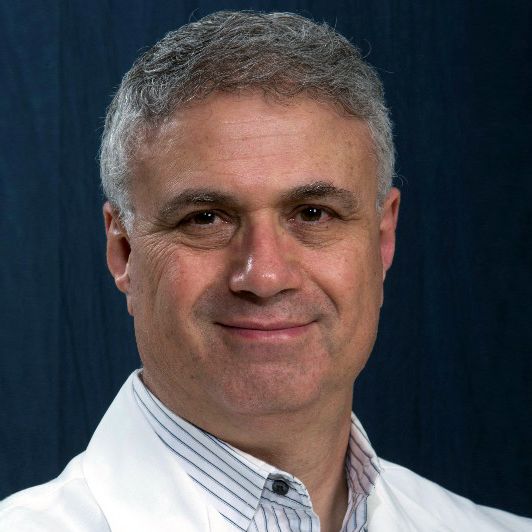Article
Vonoprazan Is Effective Against Heartburn in Symptomatic NERD
Author(s):
On-demand vonoprazan at all investigated doses was significantly better than placebo in providing rapid and sustained relief from heartburn episodes in patients with nonerosive reflux disease.
Ronnie Fass, MD

On-demand treatment with vonoprazan completely resolved heartburn in less than 3 hours with sustained relief for at least 24 hours in up to 70% of patients with symptomatic nonerosive reflux disease (NERD), according to findings from a phase 2 randomized trial presented at the American College of Gastroenterology (ACG) 2022 Annual Scientific Meeting in Charlotte, NC.
In the study, vonoprazan, a potassium-competitive acid blocker (P-CAB), was administered at 3 doses and compared with a placebo as an on-demand treatment for heartburn episodes. Complete and sustained relief was experienced by 56.0%, 60.6%, and 70.0% of patients treated with 10-mg, 20-mg, and 40-mg vonoprazan, respectively, as compared with 27.3% in the placebo arm. All 3 doses were statistically superior to placebo (P <.0001) and there were no rescue antacids required.
"Vonoprazan on-demand at all investigated doses was significantly better than placebo in providing rapid and sustained relief from heartburn episodes in nonerosive reflux disease patients," lead author Ronnie Fass, MD, The Esophageal and Swallowing Center, MetroHealth Medical System, Case Western Reserve University, Cleveland, OH, said when presenting the results. "Our findings support the potential use of vonoprazan as an on-demand option for patients with NERD. Although, a confirmatory study in a larger population is warranted."
The study was designed to include a 4-week run-in period, in which vonoprazan was administered at 20 mg daily prior to randomization. Eighty percent compliance to treatment and reporting of heartburn was required during this portion to move to randomization. Overall, there were 251 run-in failures leaving 207 patients for randomization to 6 weeks of on-demand placebo or treatment with vonoprazan across 3 doses. There were 52 patients in the 10 mg dose. Among these individuals there were 359 heartburn episodes. There were 52 patients in the 20 mg arm with 327 episodes and 51 patients in the 40 mg arm with 323 episodes. There were 52 patients randomized to the placebo group with 370 total episodes experienced.
Age was similar across groups at a range of 52.5 to 55.1 years. Roughly half to two-thirds of patients, depending on the arm, were female and mean body mass index was between 29.3 and 31.9 across groups. Mean heartburn severity was approximately 1.6 across groups and most patients had 6 or 7 days or nights with a heartburn episode. The mean number of antacid tablets taken per day was 2.5 to 3.5.
Complete and sustained relief from heartburn was experienced within 2 hours for 57.9% of those treated with the 40 mg dose of vonoprazan and for 50.7% and 46.2% with the 10 mg and 20 mg doses, respectively. For the placebo group, there were 21.9% of patients who reported relief in 2 hours or less, which was significantly less than all doses of vonoprazan (P <.0001). Relief was experienced in 1.5 hours or less for 42.1%, 31.5%, and 43.0% of patients treated with 10-mg, 20-mg, and 40-mg vonoprazan, respectively. These findings were also superior to placebo (P <.0001).
Relief in symptoms in 1 hour or less was highly significant for the 10 mg vonoprazan dose versus placebo (28.1% vs 11.9%, P <.0001). Additionally, the 20 mg dose (19.3%) and 40 mg dose (22.9%) were significant, although not to the same degree as the 10 mg dose of vonoprazan (P <.01). A significant difference was not seen between arms at 0.5 hours or less.
Complete relief in 3 hours or less with or without sustained relief (another episode within 24 hours) was experienced by 79.6% of those treated with 40-mg vonoprazan compared with 41.9% with placebo (P <.0001). These figures were 72.1% and 65.7% with the 10 mg and 20 mg doses, respectively. Similar findings were experienced at earlier time points, with relief seen in 65.2%, 50.2%, and 66.3% for the 10 mg, 20 mg, and 40 mg doses in 2 or fewer hours compared with 33.0 for placebo (P <.0001).
“Vonoprazan 10 mg and 20 mg on-demand appear equally efficacious, while vonoprazan 40 mg on-demand provided limited extra benefit over the lower doses,” said Fass.
Across arms, patients took vonoprazan on 20.8% to 22.2% of the days they were in the study. Rescue antacid use was rare and ranged from 0.1 to 0.2 tablets per day in the treatment arms and 0.5 in the placebo group. Over the course of the study, 71.2% to 75% of the days in the study were 24-hour heartburn-free days.
"Low study drug intake reflects low heartburn frequency following run-in, which was similar to the placebo group," said Fass. "There was a trend toward fewer rescue antacids in the vonoprazan arm than placebo patients."
During the run-in period, 13.1% of patients reported at least 1 adverse event (AEs). The AEs reported in more than 1 patient were abdominal distention (1.3%), diarrhea (1.5%), and nausea (1.3%). There were 2 COVID-19 events and 4 serious AEs, including 2 cases of myocardial infarctions, 1 anaphylactic reaction, and 1 case of suicidal ideation. In the on-demand portion, AEs were experienced by 21.3% of those in the placebo group, and by 16.3%, 18.4%, and 16.7% of those in the 10 mg, 20 mg, and 40 mg arms, respectively. There was 1 case of COVID-19 in each group and there were no serious AEs or the same AE reported in more than 1 patient.
Serum gastrin was low in the run-in baseline at 15.5 to 20.0 across groups. During baseline for on-demand, serum gastrin ranged from 109.0 to 172.0 and by the end of the on-demand portion serum gastrin was 22.0 to 43.5 across arms.
The oral abstract, “Efficacy and Safety of On-Demand Vonoprazan versus Placebo in the Treatment of Heartburn in Symptomatic Nonerosive Reflux Disease (NERD) Patients: A Phase 2 Randomized Controlled Trial,” was presented at ACG 2022.




